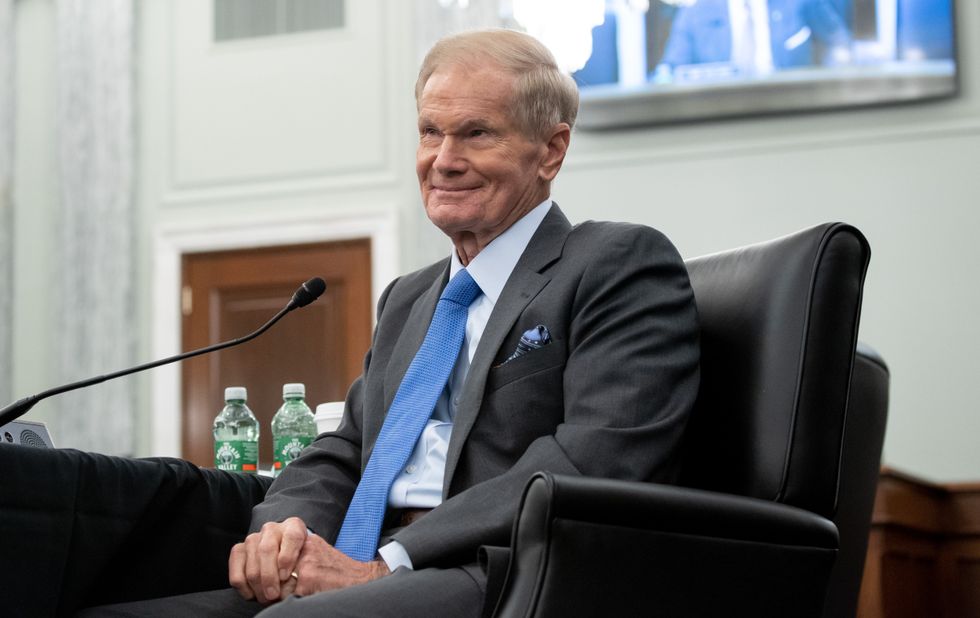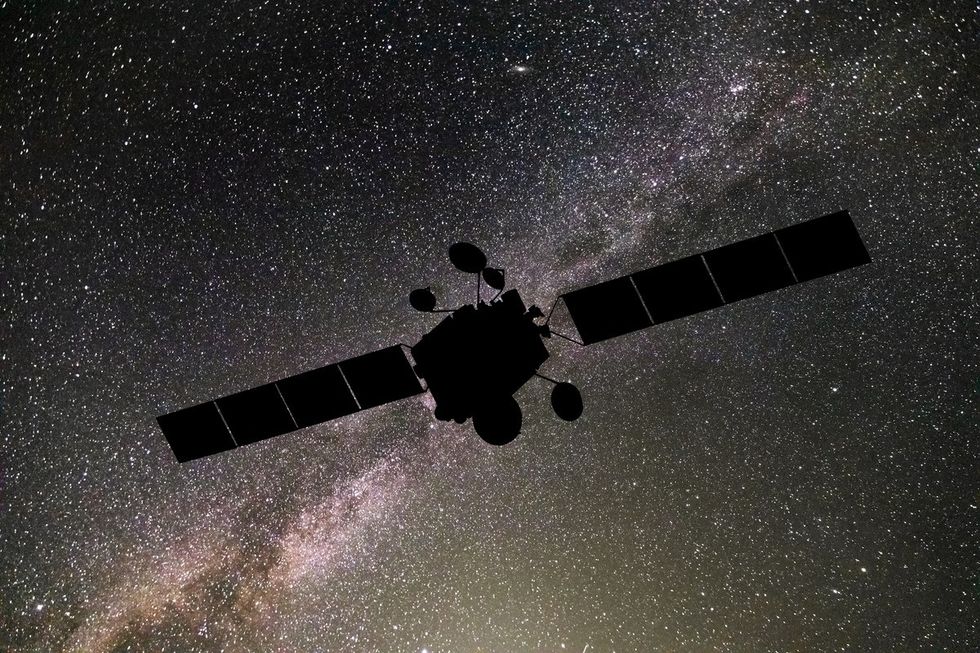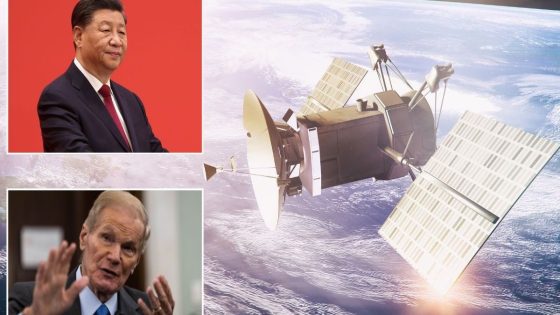China is hiding “very secretive” military activity in space, Nasa chief Bill Nelson has claimed.
Nelson, 81, alleged Beijing could take control of the moon during an appearance at the House Committee of Appropriations on Wednesday.
The former Florida Democrat said: “We believe that a lot of their so-called civilian space programme is a military programme.”
Nelson added: “China has made extraordinary strides, especially in the last 10 years, but they are very, very secretive.”
A satellite with insets of Xi Jinping and Bill Nelson
GETTY
He was giving evidence as part of the committee’s hearing to sign off the US space agency’s £20.3billion budget request for 2025.
Nelson, who claimed the US is in yet another “space race”, was asked by the committee’s chairman Hal Rogers about China’s “very significant investments” in their space programmes and how NASA would maintain its “edge” over China.
He said: “The latest date they’ve said they’re going to land [on the moon] is 2030 but that keeps moving up.
“It is incumbent on us to get there first and to utilise our research efforts for peaceful purposes.”
LATEST DEVELOPMENTS:

Former US Senator Bill Nelson
GETTY
In a fresh warning, Nelson also claimed China could capture parts of outer space as its own territory if it were to land on the moon.
He said: “My concern would be if China got there first and said, ‘This is our territory, you stay out’.
“Obviously you don’t want to interfere with each other but don’t declare that this whole territory is suddenly yours.”
The Artemis Accords requires space activity to be conducted for peaceful purposes.

China is estimated to have around 499 satellites in orbit, doubling its number since 2019.
GETTY
The treaty has been signed by more than 40 countries, including the UK.
However, Beijing has yet to sign up to the Artemis Accords.
Nelson concluded: “I would hope that the Chinese space programme will come to its senses and understand that civilian space is for peaceful uses but we have not seen that demonstrated.”
China is estimated to have around 499 satellites in orbit, doubling its number since 2019.
Source Agencies




